#Ben and Ed
Text
Some indie game recommendations from ones I’ve played or know enough about them to suggest them to others(mostly in no particular order), Part 9
Parts 1, 2, 3, 4, 5, 6, 7, 8
Sea of Stars

En Garde!

Pony Island

Ben and Ed

Bokura

Layers of Fear series

before the green moon

Corn Kidz 64

Turbo Dismount

BABBDI

Itorah

The Vagrant/Sword of the Vagrant

Subway Midnight
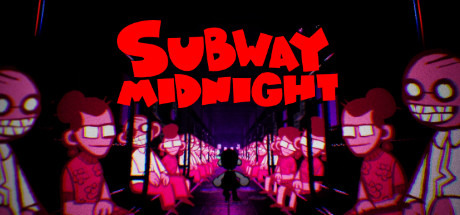
Let's Find Larry

Hylics series

Eve of Souls: Static Pod

Perfect Gold

One Finger Death Punch series

Speedrunners

Happy Wheels

Home Safety Hotline

Neverending Nightmares
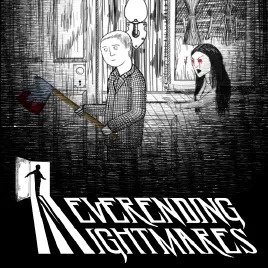
Black Snow(Half-Life 2 mod)

We Were Here series

Black Heaven

Touhou Artificial Dream in Arcadia

Kerbal Space Program series

Cavern of Dreams

Pseudoregalia

Alisa

#Indie games#long post#Sea of Stars#En Garde game#Black Heaven#Pony Island#Ben and Ed#Bokura#Layers of Fear#before the green moon#Corn Kidz 64#Babbdi#Itorah#Sword of the Vagrant#Subway Midnight#Let's Find Larry#Hylics#Eve of Souls#Perfect Gold#One Finger Death Punch#Speedrunners game#Happy Wheels#Home Security Hotline#Neverending Nightmares#Black Snow#We Were Here#Artificial Dream in Arcadia#Kerbal Space Program#Cavern of Dream#Pseudoregalia
32 notes
·
View notes
Text
cy: couldnt sleep because saw ben and ed video
also cy: must watch more ben and ed video
3 notes
·
View notes
Text















hi please ask me about my very sane crossover teen au i may have been developing for 2 years

#cartoon network#dexter's laboratory#powerpuff girls#ed edd n eddy#courage the cowardly dog#time squad#the grim adventures of billy and mandy#knd#foster's home for imaginary friends#fhfif#ben 10#adventure time#the amazing world of gumball#tawog#myart#ppg#eene#tgaobam
4K notes
·
View notes
Text
The way Ed tries to kill Hornigold, over and over and over, but fails every time is so much more tragic when you realise Hornigold is basically the voice in his head telling him he's worthless, unlovable, evil. The voice telling him to die.
And he tries so hard to get rid of it, to get rid of the voice, but loses the fight again and again. And if it weren't Stede fucking Bonnet, the complete opposite of Hornigold, the one who showed him love and fun and joy and happiness, that voice would have won.
#ofmd#ofmd2#ofmd 2#ofmd s2#edward teach#blackbeard#stede bonnet#ben hornigold#ed x stede#blackbonnet#gentlebeard#ourflagmeansdeath#our flag means death
1K notes
·
View notes
Text
The specific process by which Google enshittified its search
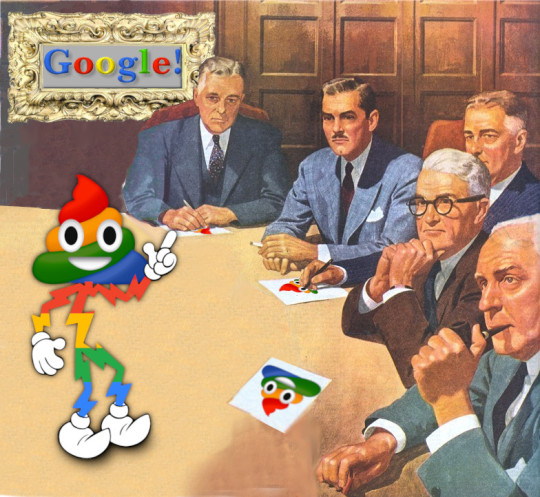
I'm touring my new, nationally bestselling novel The Bezzle! Catch me SATURDAY (Apr 27) in MARIN COUNTY, then Winnipeg (May 2), Calgary (May 3), Vancouver (May 4), and beyond!

All digital businesses have the technical capacity to enshittify: the ability to change the underlying functions of the business from moment to moment and user to user, allowing for the rapid transfer of value between business customers, end users and shareholders:
https://pluralistic.net/2023/02/19/twiddler/
If you'd like an essay-formatted version of this thread to read or share, here's a link to it on pluralistic.net, my surveillance-free, ad-free, tracker-free blog:
https://pluralistic.net/2024/04/24/naming-names/#prabhakar-raghavan
Which raises an important question: why do companies enshittify at a specific moment, after refraining from enshittifying before? After all, a company always has the potential to benefit by treating its business customers and end users worse, by giving them a worse deal. If you charge more for your product and pay your suppliers less, that leaves more money on the table for your investors.
Of course, it's not that simple. While cheating, price-gouging, and degrading your product can produce gains, these tactics also threaten losses. You might lose customers to a rival, or get punished by a regulator, or face mass resignations from your employees who really believe in your product.
Companies choose not to enshittify their products…until they choose to do so. One theory to explain this is that companies are engaged in a process of continuous assessment, gathering data about their competitive risks, their regulators' mettle, their employees' boldness. When these assessments indicate that the conditions are favorable to enshittification, the CEO walks over to the big "enshittification" lever on the wall and yanks it all the way to MAX.
Some companies have certainly done this – and paid the price. Think of Myspace or Yahoo: companies that made themselves worse by reducing quality and gouging on price (be it measured in dollars or attention – that is, ads) before sinking into obscure senescence. These companies made a bet that they could get richer while getting worse, and they were wrong, and they lost out.
But this model doesn't explain the Great Enshittening, in which all the tech companies are enshittifying at the same time. Maybe all these companies are subscribing to the same business newsletter (or, more likely, buying advice from the same management consultancy) (cough McKinsey cough) that is a kind of industry-wide starter pistol for enshittification.
I think it's something else. I think the main job of a CEO is to show up for work every morning and yank on the enshittification lever as hard as you can, in hopes that you can eke out some incremental gains in your company's cost-basis and/or income by shifting value away from your suppliers and customers to yourself.
We get good digital services when the enshittification lever doesn't budge – when it is constrained: by competition, by regulation, by interoperable mods and hacks that undo enshittification (like alternative clients and ad-blockers) and by workers who have bargaining power thanks to a tight labor market or a powerful union:
https://pluralistic.net/2023/11/09/lead-me-not-into-temptation/#chamberlain
When Google ordered its staff to build a secret Chinese search engine that would censor search results and rat out dissidents to the Chinese secret police, googlers revolted and refused, and the project died:
https://en.wikipedia.org/wiki/Dragonfly_(search_engine)
When Google tried to win a US government contract to build AI for drones used to target and murder civilians far from the battlefield, googlers revolted and refused, and the project died:
https://www.nytimes.com/2018/06/01/technology/google-pentagon-project-maven.html
What's happened since – what's behind all the tech companies enshittifying all at once – is that tech worker power has been smashed, especially at Google, where 12,000 workers were fired just months after a $80b stock buyback that would have paid their wages for the next 27 years. Likewise, competition has receded from tech bosses' worries, thanks to lax antitrust enforcement that saw most credible competitors merged into behemoths, or neutralized with predatory pricing schemes. Lax enforcement of other policies – privacy, labor and consumer protection – loosened up the enshittification lever even more. And the expansion of IP rights, which criminalize most kinds of reverse engineering and aftermarket modification, means that interoperability no longer applies friction to the enshittification lever.
Now that every tech boss has an enshittification lever that moves very freely, they can show up for work, yank the enshittification lever, and it goes all the way to MAX. When googlers protested the company's complicity in the genocide in Gaza, Google didn't kill the project – it mass-fired the workers:
https://medium.com/@notechforapartheid/statement-from-google-workers-with-the-no-tech-for-apartheid-campaign-on-googles-indiscriminate-28ba4c9b7ce8
Enshittification is a macroeconomic phenomenon, determined by the regulatory environment for competition, privacy, labor, consumer protection and IP. But enshittification is also a microeconomic phenomenon, the result of innumerable boardroom and product-planning fights within companies in which would-be enshittifiers try to do things that make the company's products and services shittier wrestle with rivals who want to keep things as they are, or make them better, whether out of principle or fear of the consequences.
Those microeconomic wrestling-matches are where we find enshittification's heroes and villains – the people who fight for the user or stand up for a fair deal, versus the people who want to cheat and wreck to make things better for the company and win bonuses and promotions for themselves:
https://locusmag.com/2023/11/commentary-by-cory-doctorow-dont-be-evil/
These microeconomic struggles are usually obscure, because companies are secretive institutions and our glimpses into their deliberations are normally limited to the odd leaked memo, whistleblower tell-all, or spectacular worker revolt. But when a company gets dragged into court, a new window opens into the company's internal operations. That's especially true when the plaintiff is the US government.
Which brings me back to Google, the poster-child for enshittification, a company that revolutionized the internet a quarter of a century ago with a search-engine that was so good that it felt like magic, which has decayed so badly and so rapidly that whole sections of the internet are disappearing from view for the 90% of users who rely on the search engine as their gateway to the internet.
Google is being sued by the DOJ's Antitrust Division, and that means we are getting a very deep look into the company, as its internal emails and memos come to light:
https://pluralistic.net/2023/10/03/not-feeling-lucky/#fundamental-laws-of-economics
Google is a tech company, and tech companies have literary cultures – they run on email and other forms of written communication, even for casual speech, which is more likely to take place in a chat program than at a water-cooler. This means that tech companies have giant databases full of confessions to every crime they've ever committed:
https://pluralistic.net/2023/09/03/big-tech-cant-stop-telling-on-itself/
Large pieces of Google's database-of-crimes are now on display – so much, in fact, that it's hard for anyone to parse through it all and understand what it means. But some people are trying, and coming up with gold. One of those successful prospectors is Ed Zitron, who has produced a staggering account of the precise moment at which Google search tipped over into enshittification, which names the executives at the very heart of the rot:
https://www.wheresyoured.at/the-men-who-killed-google/
Zitron tells the story of a boardroom struggle over search quality, in which Ben Gomes – a long-tenured googler who helped define the company during its best years – lost a fight with Prabhakar Raghavan, a computer scientist turned manager whose tactic for increasing the number of search queries (and thus the number of ads the company could show to searchers) was to decrease the quality of search. That way, searchers would have to spend more time on Google before they found what they were looking for.
Zitron contrasts the background of these two figures. Gomes, the hero, worked at Google for 19 years, solving fantastically hard technical scaling problems and eventually becoming the company's "search czar." Raghavan, the villain, "failed upwards" through his career, including a stint as Yahoo's head of search from 2005-12, a presiding over the collapse of Yahoo's search business. Under Raghavan's leadership, Yahoo's search market-share fell from 30.4% to 14%, and in the end, Yahoo jettisoned its search altogether and replaced it with Bing.
For Zitron, the memos show how Raghavan engineered the ouster of Gomes, with help from the company CEO, the ex-McKinseyite Sundar Pichai. It was a triumph for enshittification, a deliberate decision to make the product worse in order to make it more profitable, under the (correct) belief that the company's exclusivity deals to provide search everywhere from Iphones and Samsungs to Mozilla would mean that the business would face no consequences for doing so.
It a picture of a company that isn't just too big to fail – it's (as FTC Chair Lina Khan put it on The Daily Show) too big to care:
https://www.youtube.com/watch?v=oaDTiWaYfcM
Zitron's done excellent sleuthing through the court exhibits here, and his writeup is incandescently brilliant. But there's one point I quibble with him on. Zitron writes that "It’s because the people running the tech industry are no longer those that built it."
I think that gets it backwards. I think that there were always enshittifiers in the C-suites of these companies. When Page and Brin brought in the war criminal Eric Schmidt to run the company, he surely started every day with a ritual, ferocious tug at that enshittification lever. The difference wasn't who was in the C-suite – the difference was how freely the lever moved.
On Saturday, I wrote:
The platforms used to treat us well and now treat us badly. That's not because they were setting a patient trap, luring us in with good treatment in the expectation of locking us in and turning on us. Tech bosses do not have the executive function to lie in wait for years and years.
https://pluralistic.net/2024/04/22/kargo-kult-kaptialism/#dont-buy-it
Someone on Hacker News called that "silly," adding that "tech bosses do in fact have the executive function to lie in wait for years and years. That's literally the business model of most startups":
https://news.ycombinator.com/item?id=40114339
That's not quite right, though. The business-model of the startup is to yank on the enshittification lever every day. Tech bosses don't lie in wait for the perfect moment to claw away all the value from their employees, users, business customers, and suppliers – they're always trying to get that value. It's only when they become too big to care that they succeed. That's the definition of being too big to care.
In antitrust circles, they sometimes say that "the process is the punishment." No matter what happens to the DOJ's case against Google, its internal workers have been made visible to the public. The secrecy surrounding the Google trial when it was underway meant that a lot of this stuff flew under the radar when it first appeared. But as Zitron's work shows, there is plenty of treasure to be found in that trove of documents that is now permanently in the public domain.
When future scholars study the enshittocene, they will look to accounts like Zitron's to mark the turning points from the old, good internet to the enshitternet. Let's hope those future scholars have a new, good internet on which to publish their findings.

If you'd like an essay-formatted version of this post to read or share, here's a link to it on pluralistic.net, my surveillance-free, ad-free, tracker-free blog:
https://pluralistic.net/2024/04/24/naming-names/#prabhakar-raghavan
#pluralistic#ed zitron#google#microincentives#constraints#enshittification#rot economy#platform decay#search#ben gomes#code yellow#mckinsey#hacking engagement#Prabhakar Raghavan#yahoo#doj#antitrust#trustbusting
444 notes
·
View notes
Text










childhood shows + favorites
#i tried to either capture what the character would wear or what id wear in that universe#childhood#cartoon network#nickelodeon#disney channel#courage the cowardly dog#the grim adventures of billy and mandy#all grown up#danny phantom#recess#charlie and lola#ben 10#rocket power#totally spies#ed edd n eddy#tvedit#cartoons
1K notes
·
View notes
Text



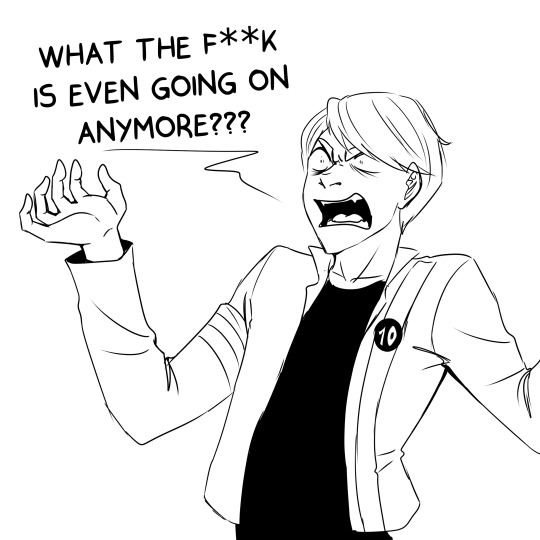
My 4 moods lately feat. the guides.
625 notes
·
View notes
Text





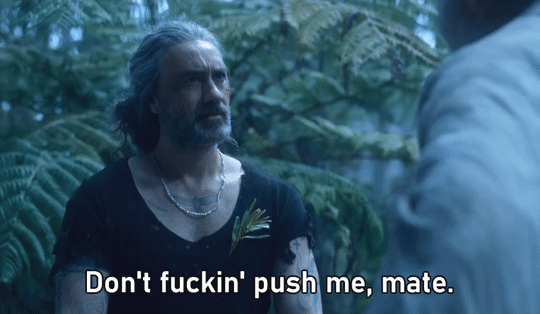
stede and ed: customer service edition (insp)
#coming in with a buzzer beater before eps 4 and 5#ofmd#our flag means death#ofmd season 2#ofmd s2 spoilers#ofmd gifs#stede bonnet#edward teach#ed teach#ben hornigold
645 notes
·
View notes
Text


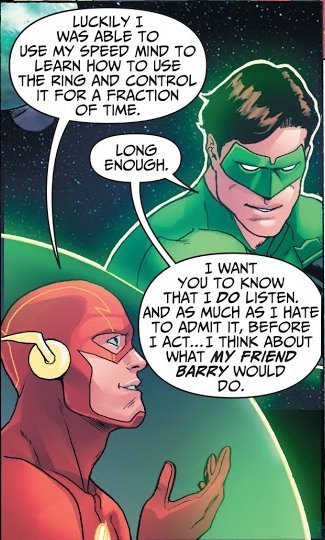



Mis shipps con los colores rojo y verde
#rojo y verde#francesco bernoulli#lightning mcqueen#Cars2#leegaa#rock lee#sabaku no gaara#halbarry#hal jordan#barry allen#tech x rev#loonatics unleashed#benrex#ben 10#generator rex#kevedd#ed edd n eddy
460 notes
·
View notes
Text
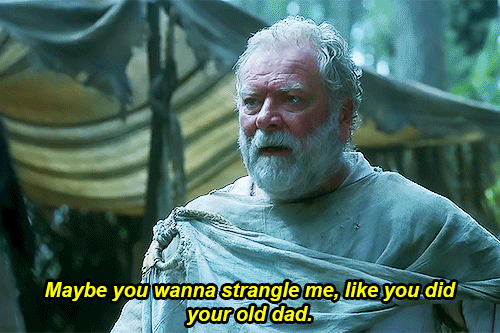
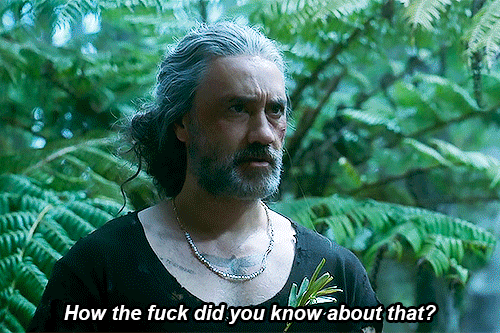




That's right. You're not very good with people, are you?
438 notes
·
View notes
Photo
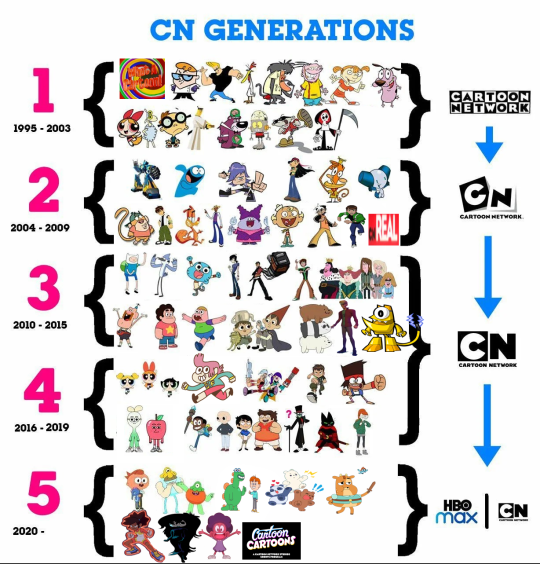
I updated that Cartoon Network Generations chart with more shows
#cartoon network#cartoon cartoons#powerpuff girls#the fungies#we baby bears#generator rex#the secret saturdays#Adventure Time#elliott from earth#ben 10#invincible fight girl#craig of the creek#steven universe#mixels#ed edd n eddy#johnny bravo#summer camp island#infinity train#camp lazlo
2K notes
·
View notes
Text
something something hornigold telling ed he wants to be referred to as “just ben” ie dropping the legendary status that is his title because in ed’s subconscious he wants nothing more than to drop “the kraken” and “blackbeard” and be “just ed” something something
#OFMD#OFMD Season 2#OFMD S2 Spoilers#Edward Teach#Benjamin Hornigold#this came to me while driving and i almost crashed my car <3 WKXJWND#LIKE GOOOOOODNESS LOOKING AT BEN THROUGH ED JUST MAKES ME 😀😀💀💀#MAKES ME WANT TO JUST 🕳🤸🏼♀️#YOU KNOW???#also yes call him ed#but also call him eddie because that heals me#it’s just so SWEET
387 notes
·
View notes
Text
the comments on the bennnnnnn fb oh my god ppl are so done but im intrigued guys ... <-wont sleep tonight again
1 note
·
View note
Text
people often complain about how Ben seems to have gotten weaker and clumsier from uaf to omniverse, and I get that's an annoying writing decision, but id like to posit a theory.
Ben used to be an athlete, a star one at that, and he used to be a pretty physically fit and healthy guy, visibly being muscular while still having a smaller build. in omniverse, it seems all that muscle is pretty much gone, as he seems to have trouble carrying things, being balanced, and even doing routine workouts that he supposedly regularly did when he was younger. he's even kind of shrunk.

but the thing is: this is proven to extend to his aliens too.
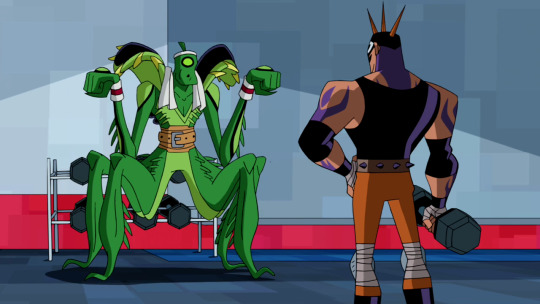
back when Ben was physically fit, wildvine's entire power set was based on grip and strength, using his vines to swing on things or bring enemies or objects closer to him, which required strength.and now he just can't. just like Ben.
which kind of brings us to the question of why Ben is deteriorating in this fashion? he still leads a very active lifestyle, doesn't seem to have any diseases. why's he going so downhill? (the answer to this question writing wise is a different thing, I am trying to rationalize the world he lives in instead of the world the writers do). the answer probably lies in food. in ogs and uaf, Ben had a pretty diverse diet, at least by kid standards. he ate a lot of junk in ogs, but that's just because what else are you gonna eat on a road trip, and as previously stated, af/uaf Ben is an athlete, who seems to actually like a lot of vegetables, eats dinner with his family, only has fast food on patrol. around the time Gwen and Kevin left, though, things changed.
Ben has kind of an obsession with smoothies in omniverse. they're usually the only thing he's seen consuming besides the occasional chili fries, he thinks about them all the time, the comtumellia literally take the form of them. which, yes, flanderization, haha aketchi pancake think blah blah blah, but the thing is, that flanderization kind of recharacterizes his degredation.

Ben had to drop out in uaf, so now his full time job is working for the plumbers, in am environment where everyone expects him to be an ubermensch who never shows a single flaw, and when he messes up in a normal way, he's the stupidest motherfucker alive, even though he's got more experience than anyone combined. plus, he's got to go on patrol all day long, fight a universe ending threat, and then conk out at 3 and wake up at 5 to do it all again. no family dinners, no time to cram an apple in his bag for later, and the only quick easy and cheap thing for him is smoothies. junk food. quick energy boosts. and it seems like he can't stop thinking about them (although I acknowledge what a copout that was lol), can't stop thinking about food. and consuming only liquid processed baby food for all your meals and getting zero hours of sleep isn't good for your body, and the aliens you inhabit are reflections of your person, so you degrade,they degrade, making b grade villains a slog and lifting over 30 pounds even more of one.
not particularly going in an eating disorder direction with this? still tagged it that though just in case. just wanted to share something I don't rlly see people try to come up w an in universe explanation for. I'm personally leaning more toward an ARFID angle, but I'd be interested to see other's takes
#ben 10#ben 10 omniverse#ben 10 alien force#ben tennyson#ben 10 ultimate alien#ben 10 classic#ben ten#eating disorder#tw ed#tw eating disorder
199 notes
·
View notes
Text

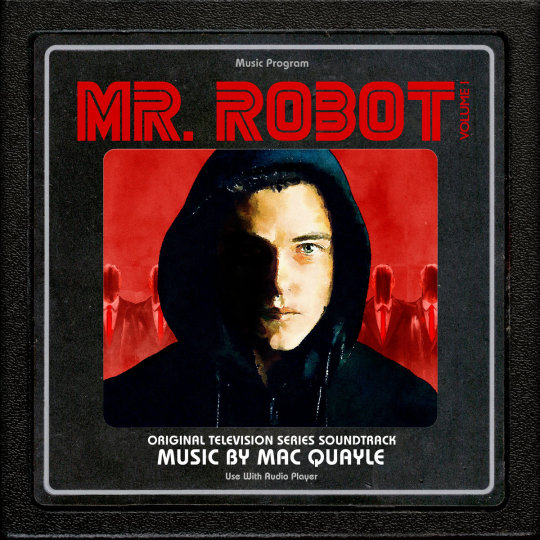




Beyond Bladerunner - a list of cyberpunk(ish) records
A selection of lesser known cyberpunk(ish) records that goes beyond the usual suspects of Bladerunner and Ghost In The Shell. Each of the individual artists has more releases that are worth checking out. I added the Bandcamp link to the titles if available.
Ben Prunty - Cipher
Mac Quayle - Mr. Robot Volume 1
Yan van der Cruyssen - Stray
Ed Harrison - Neotokyo GSDF
Michael McCann/Sascha Dikiciyan/Ed Harrison - Deus Ex: Mankind Divided
Paul Leonard Morgan - Dredd
#cyberpunk#scifi#futurism#ben prunty#mac quayle#mr robot#stray#neotokyo#deus ex mankind divided#dredd#ed harrison#paul leonard morgan#yan van der cruyssen
103 notes
·
View notes
Text

art by Tomasz
#Cartoon Network#Adult Swim#Space Ghost#Dexter's Laboratory#Johnny Bravo#Cow and Chicken#The PowerPuff Girls#Ed Edd n Eddy#Courage the Cowardly Dog#Sheep in the Big City#Samurai Jack#The Grim Adventures of Billy and Mandy#Codename: Kids Next Door#Foster's Home for Imaginary Friends#The Life and Times of Juniper Lee#Camp Lazlo#Ben 10#Chowder#The Marvelous Misadventures of FlapJack#Adventure Time#Regular Show#The Amazing World of Gumball#Uncle Grandpa#Steven Universe#We Bare Bears#OK K.O.! Let's Be Heroes#Craig of the Creek#Mao Mao: Heroes of Pure Heart#DC#Teen Titans Go!
238 notes
·
View notes